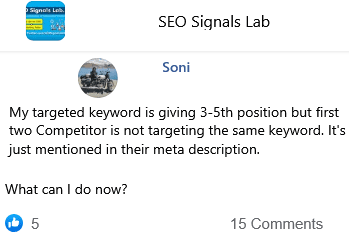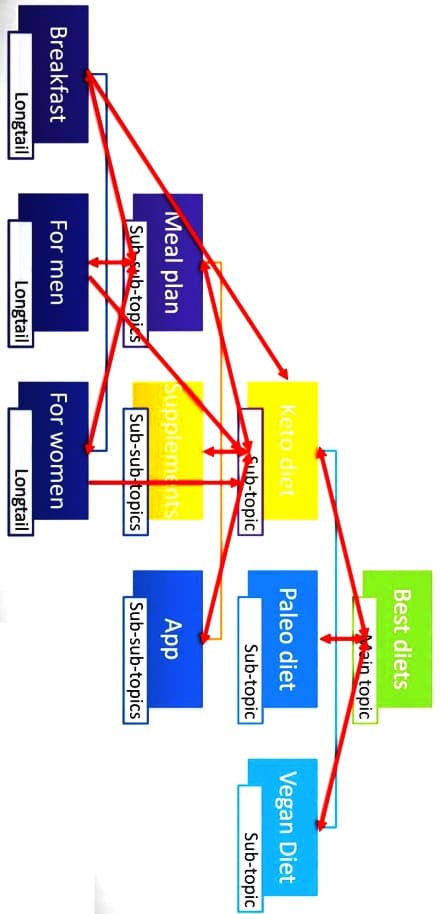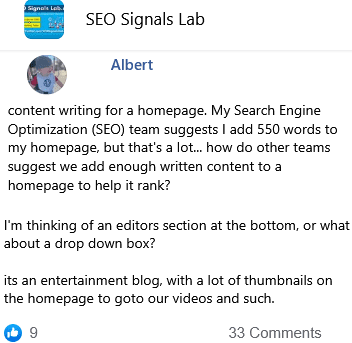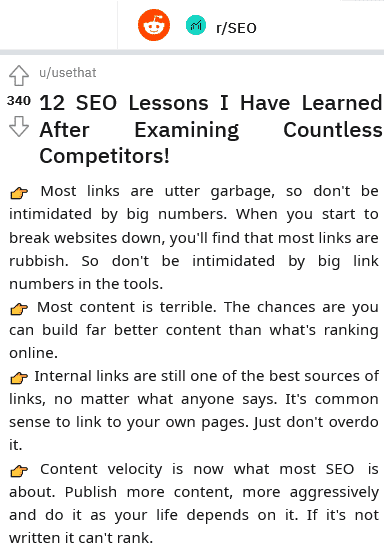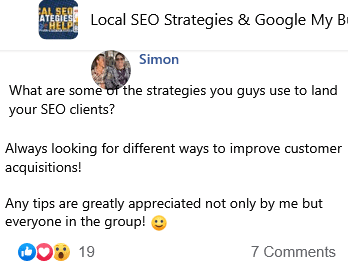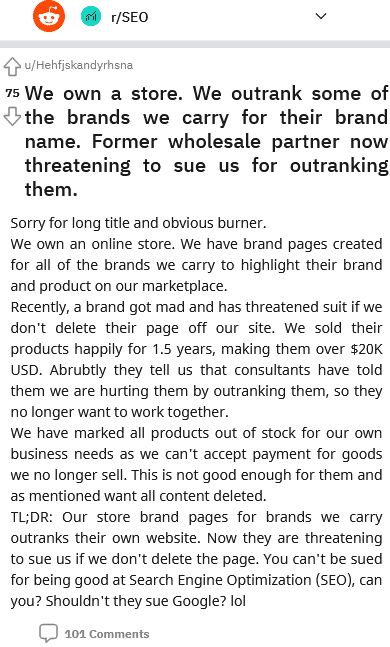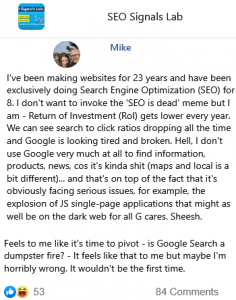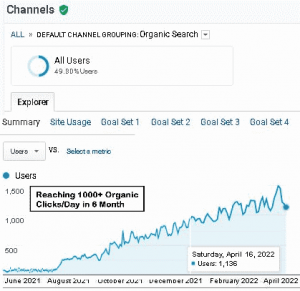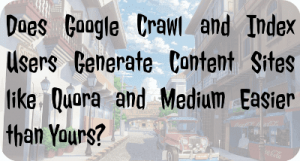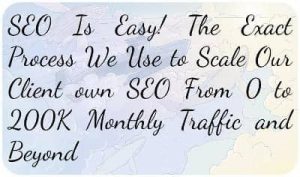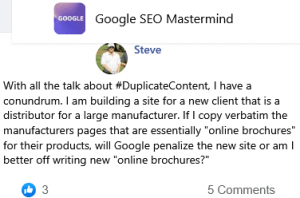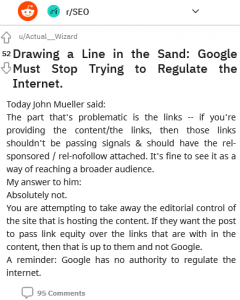Soni
My targeted keyword is giving 3-5th position but first two Competitor is not targeting the same keyword. It's just mentioned in their meta description.
What can I do now?
5 👍🏽515 💬🗨
My targeted keyword is giving 3-5th position but first two Competitor is not targeting the same keyword. It's just mentioned in their meta description.
What can I do now?
5 👍🏽515 💬🗨
📰👈
Ammon Johns 🎓
Welcome to the world of Semantic Search. You've got a few years of catching up to do on how keywords work in the age of query rewriting.
Welcome to the world of Semantic Search. You've got a few years of catching up to do on how keywords work in the age of query rewriting.
Soni ✍️ » Ammon Johns
Can you please explain?
Colman » Soni
Google focuses on good writing and not keyword stuffing (simple terms) so your articles should have word that relate to the targeted word. For instance If your keyword is car repair some additional terms could be
Bumpers, headlight repair etc etc and synonyms like cars repairing etc etc
Truslow 🎓 » Soni
This, as Ammon alluded to, is something that is fairly complicated and can't be completely explained in a situation like this.
Here are some basics…
Hero Sandwich, Hoagie, and Submarine Sandwich are basically the same thing. A Club Sandwich is something totally different. Google knows these facts.
If I create a page optimized for the keywords "Hero Sandwich" – it's quite possible that Google will decide to rank that page when someone searches for "Hoagies" or "Sub Sandwich" even though I have not used those words on the page. It also knows NOT to consider me for ranking if someone searches for "Club Sandwich".
Search Google for "Semantic SEO" and brace yourself for a long road a learning. If you're going to succeed in modern Search Engine Optimization (SEO), you're going to need to understand it, though. And… frankly… for the past few years, Semantic SEO has turned my job a LOT more fun and interesting than it was back when we were just playing the "get links, match keywords, rank" game.
In the past, that's how the game was played. Google did what Google did. Now though, I actually have the ability to tell Google what to think. That's fun.
🤔💟8
Stojan » Truslow
Thanks for the input! Would you say that this article is optimized for semantic search?
What is Freelancing – Ultimate Guide 2021 – Eacademy
Truslow 🎓 » Stojan
I don't have a lot of time right now, but based upon the first sentence, I'm going to go with "No." Not at all.
"In the last few years, we constantly hear people defining them as freelancers when asked ‘What do you do for a living?'"
NLP is going to try to attach the primary entity it finds to "them" – but who are they? I can't tell and even the next sentence gets more confusing.
I didn't even check for schema.
Watch this video for a primer.
30 minutes and you'll get a basic understanding.
Ammon Johns 🎓 » Stojan
I can't speak for Stock's opinion, but I can frankly tell you mine. That's the kind of page Google is looking to eliminate.
It's a page created with no specific expertise on the topic, no real understanding, beyond having just read some other basic content and tried to regurgitate it. It at least tries to emulate the years old Skyscraper technique, rather than just pure scraping, but it is still spam to Google's viewpoint.
It embed the questions into the page, as if they are keyword phrases and this is still 1998. In other words, it is a page created specifically to try to rank, rather than because the writer had a burning need to share advanced and superior knowledge.
It is poorly written (in terms of English language skills, and in terms of expertise or authority), and covers the topic at a superficial, unoriginal level that a thousand other sources would be better for.
Stojan » Truslow
Awesome video, thank you for sharing! If you have any great schema learning material would be appreciated! thanks for sharing again
Stojan » Ammon Johns
Thank you for the constructive critic Ammon! Appreciated it as always. We would reconsider our writing strategy for future.
Hi Ammon, I've shared your feedback with the author of the article, and she got a little bit bumped 🙂 It was one of her first articles, and indeed you were right, she does not have a lot of freelancing experience. However, she is a business analyst and she was wondering if you could have a quick view of this article and share your opinion as well? It would mean a lot for her and us as a start-up as we are still trying to point ourselves in the right direction.
Much appreciate it if you could take the time, and have a great weekend! Cheers..
EXPLAINED – Cohort Analysis Made Simple Plus Examples – Eacademy
Ammon Johns 🎓 » Stojan
She's not a native English speaker, and it shows instantly, and constantly, through the article. That alone creates an immediate barrier to trust in the content, a suspicion that even if the writer knows their stuff, maybe they used the wrong word, or otherwise mistranslated.
The article is long. Now it comes as no surprise to anyone that I don't mind long content. Complex things take time to explain, and oversimplifications cause more misunderstandings than they fix. But with the obvious slight dissonance of the language issues, the length only magnifies the problems. It's hard to read, and long.
A line like "A massive stream of users may sound good, but what if that same stream is trying to indicate a weakness in your product?" isn't quite right in English, and has no clear meaning. "Trying to indicate" would mean an active attempt to signal, in this case, people would be actively complaining. But The reader cannot be sure if that is what is meant at all. And if it is, it doesn't seem to fit the rest of the paragraph.
That's just one example. There were more. When you take a topic that is already tricky to explain to many people, adding the extra trickiness of having to decode bad translation and guess what might have been intended is not at all helpful.
I could tell that the writer seemed more confident in this topic. They used more idioms, and the language was more personal. But the idioms didn't always translate well, and that language barrier created a gap that didn't make the personal touch feel merited.
This needs a much better translator to work as educational material in English. Honestly, this would currently work better in their first language using Google to translate, as then at least the blame for any errors gets levelled at Google, and us for using it, rather than a lapse in editorial standard.
Stojan » Ammon Johns
Thank you for taking the time. Your remarks are on point… non of us in the team is a native English speaker. Therefore, we might have this sort of mistranslation in some cases that we try to minimize and eradicate. We do use Grammarly for help in our writing, but obviously, that doesn't help all the way.
Your feedback made me realize that perhaps the first thing we need to do once we start modernizing through the website should be hiring a native English editor to spot these mistranslations. This should help create more digestive content that can be more competitive in the English-speaking markets, US, UK, and Australia.
Until then, we will give our best in minimizing these mistranslations and provide with more pleasant experience to our readers.
Can you please explain?
Colman » Soni
Google focuses on good writing and not keyword stuffing (simple terms) so your articles should have word that relate to the targeted word. For instance If your keyword is car repair some additional terms could be
Bumpers, headlight repair etc etc and synonyms like cars repairing etc etc
Truslow 🎓 » Soni
This, as Ammon alluded to, is something that is fairly complicated and can't be completely explained in a situation like this.
Here are some basics…
Hero Sandwich, Hoagie, and Submarine Sandwich are basically the same thing. A Club Sandwich is something totally different. Google knows these facts.
If I create a page optimized for the keywords "Hero Sandwich" – it's quite possible that Google will decide to rank that page when someone searches for "Hoagies" or "Sub Sandwich" even though I have not used those words on the page. It also knows NOT to consider me for ranking if someone searches for "Club Sandwich".
Search Google for "Semantic SEO" and brace yourself for a long road a learning. If you're going to succeed in modern Search Engine Optimization (SEO), you're going to need to understand it, though. And… frankly… for the past few years, Semantic SEO has turned my job a LOT more fun and interesting than it was back when we were just playing the "get links, match keywords, rank" game.
In the past, that's how the game was played. Google did what Google did. Now though, I actually have the ability to tell Google what to think. That's fun.
🤔💟8
Stojan » Truslow
Thanks for the input! Would you say that this article is optimized for semantic search?
https://eacademy.blog/entrepreneurship/what-is-freelancing-ultimate-guide-2021/What is Freelancing – Ultimate Guide 2021 – Eacademy
Truslow 🎓 » Stojan
I don't have a lot of time right now, but based upon the first sentence, I'm going to go with "No." Not at all.
"In the last few years, we constantly hear people defining them as freelancers when asked ‘What do you do for a living?'"
NLP is going to try to attach the primary entity it finds to "them" – but who are they? I can't tell and even the next sentence gets more confusing.
I didn't even check for schema.
Watch this video for a primer.
https://jasonbarnard.com/digital-marketing/published-content/videos/how-to-help-google-make-sense-of-a-chaotic-unstructured-web/30 minutes and you'll get a basic understanding.
Ammon Johns 🎓 » Stojan
I can't speak for Stock's opinion, but I can frankly tell you mine. That's the kind of page Google is looking to eliminate.
It's a page created with no specific expertise on the topic, no real understanding, beyond having just read some other basic content and tried to regurgitate it. It at least tries to emulate the years old Skyscraper technique, rather than just pure scraping, but it is still spam to Google's viewpoint.
It embed the questions into the page, as if they are keyword phrases and this is still 1998. In other words, it is a page created specifically to try to rank, rather than because the writer had a burning need to share advanced and superior knowledge.
It is poorly written (in terms of English language skills, and in terms of expertise or authority), and covers the topic at a superficial, unoriginal level that a thousand other sources would be better for.
Stojan » Truslow
Awesome video, thank you for sharing! If you have any great schema learning material would be appreciated! thanks for sharing again
Stojan » Ammon Johns
Thank you for the constructive critic Ammon! Appreciated it as always. We would reconsider our writing strategy for future.
Hi Ammon, I've shared your feedback with the author of the article, and she got a little bit bumped 🙂 It was one of her first articles, and indeed you were right, she does not have a lot of freelancing experience. However, she is a business analyst and she was wondering if you could have a quick view of this article and share your opinion as well? It would mean a lot for her and us as a start-up as we are still trying to point ourselves in the right direction.
https://eacademy.blog/data-analytics/explained-cohort-analysis-made-simple-plus-examples/Much appreciate it if you could take the time, and have a great weekend! Cheers..
EACADEMY.BLOGEXPLAINED – Cohort Analysis Made Simple Plus Examples – Eacademy
Ammon Johns 🎓 » Stojan
She's not a native English speaker, and it shows instantly, and constantly, through the article. That alone creates an immediate barrier to trust in the content, a suspicion that even if the writer knows their stuff, maybe they used the wrong word, or otherwise mistranslated.
The article is long. Now it comes as no surprise to anyone that I don't mind long content. Complex things take time to explain, and oversimplifications cause more misunderstandings than they fix. But with the obvious slight dissonance of the language issues, the length only magnifies the problems. It's hard to read, and long.
A line like "A massive stream of users may sound good, but what if that same stream is trying to indicate a weakness in your product?" isn't quite right in English, and has no clear meaning. "Trying to indicate" would mean an active attempt to signal, in this case, people would be actively complaining. But The reader cannot be sure if that is what is meant at all. And if it is, it doesn't seem to fit the rest of the paragraph.
That's just one example. There were more. When you take a topic that is already tricky to explain to many people, adding the extra trickiness of having to decode bad translation and guess what might have been intended is not at all helpful.
I could tell that the writer seemed more confident in this topic. They used more idioms, and the language was more personal. But the idioms didn't always translate well, and that language barrier created a gap that didn't make the personal touch feel merited.
This needs a much better translator to work as educational material in English. Honestly, this would currently work better in their first language using Google to translate, as then at least the blame for any errors gets levelled at Google, and us for using it, rather than a lapse in editorial standard.
Stojan » Ammon Johns
Thank you for taking the time. Your remarks are on point… non of us in the team is a native English speaker. Therefore, we might have this sort of mistranslation in some cases that we try to minimize and eradicate. We do use Grammarly for help in our writing, but obviously, that doesn't help all the way.
Your feedback made me realize that perhaps the first thing we need to do once we start modernizing through the website should be hiring a native English editor to spot these mistranslations. This should help create more digestive content that can be more competitive in the English-speaking markets, US, UK, and Australia.
Until then, we will give our best in minimizing these mistranslations and provide with more pleasant experience to our readers.
📰👈
Google uses Natural Language Processing (NLP) instead of Latent Semantic Indexing (LSI) due to Both Different Patent Owners
Ammon: Google don’t Care about Silos, or Pages Only Linking to Other Pages on the Same Topic, Same Website
Recommended Number of Words for an Article to Beat the Competition in Search Engine Result Pages SERPs
Tips to Rank on Other SEs besides Google like Bing, Yahoo, DuckDuckGo
Embed this to your blogs! Then visit Ke-1.com anytime!
